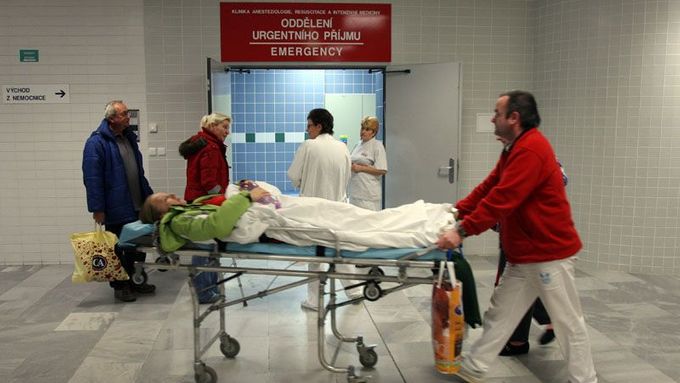London/Prague - When it comes down to being ill, Czechs are among the European countries with the highest absence rate, according to a survey conducted by British agency Mercer.
Mercer surveyed nearly 800 companies across 24 European countries. The data showed that, on average, European employees are absent 7.4 days per year.
At a time when firms are looking to minimize costs, absence rates in Europe are on the rise. Nearly 20 percent of the surveyed companies noted an increase in the number of sick days taken by staff.
From the survey it transpires that Bulgarian employees took most time off for ill-health (22 days), followed by Portugal and then by the Czech Republic.
According to the survey, average European employee absence rate of 7.4 days per year and 58 percent of respondents said that, on average, employees were absent five days or fewer per year. However, 15 percent report averages of 10 days per year or more, an increase from the 12 percent in 2006.
Muscles, bones and mental health
Musculoskeletal conditions were identified by 78 percent of respondents as the cause of most long-term absences. Thirty-one percent specifically referenced lower back pain and 47 percent other musculoskeletal conditions. Stress and mental health issues (52 percent) and cancer conditions (20 percent) were also featured amongst the highest disability causes.
Employers in France were the most likely to select cancer as one of the top three disabilities (55 percent). This was higher than the European average. Disabilities due to stress and mental health issues appear to be most common in the Netherlands, the UK and the Nordic countries - being cited by more than 70 percent of respondents in each country.
Healthy Turks
The lowest absence was reported by respondents in Turkey (4.6 days). The UK and Spain also reported low average rates (5.5 and 5.7 days, respectively). In a comparable US survey by Mercer, respondents reported an average of 5.1 days.
However, the American and Turkish companies are not that generous with providing health care benefits to staff. Some European employers provide rehabilitation services (25 percent) and access to treatment at the employer's cost. For example in Sweden, rehabilitation services are set by law as the employer's responsibility.
Steve Clements of Mercer's health and benefit business "Health costs are rising across Europe and yet we know health benefits remain extremely highly valued by employees."
Frequent absences have a negative impact on employers, which should try to get better access to staff absence information.
But in some countries privacy laws ban or limit access to absence information. Therefore some companies make illness information submission from employees a voluntary process.
"In the current high-pressure and uncertain employment environment, it is important to quickly identify the causes of ill health and effectively target support services to these areas," commented Mr Clements.
These programs aim to speed up an employee's successful return to work and productivity, which should benefit both - employer as well as employee.








